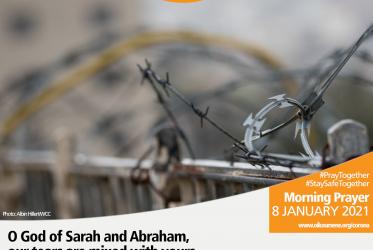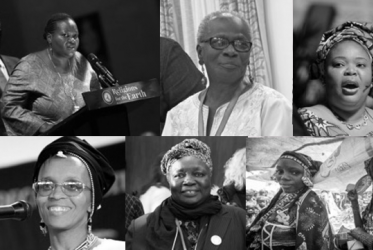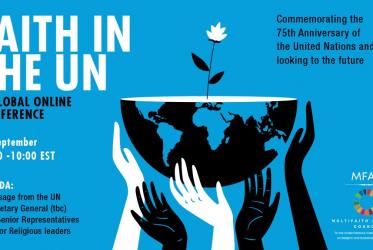Displaying 101 - 120 of 734
Rethinking Ecological Relationships in the Anthropocene era
11 - 13 February 2021
“From faith to action” conference will explore ways to protect children’s rights affected by migration
10 - 11 December 2020
Online
Webinar series: Theological Reflections on Hate Speech and Whiteness
19 - 23 October 2020
“Faith In The UN” – Commemorating the 75th Anniversary of the United Nations
08 September 2020
online






